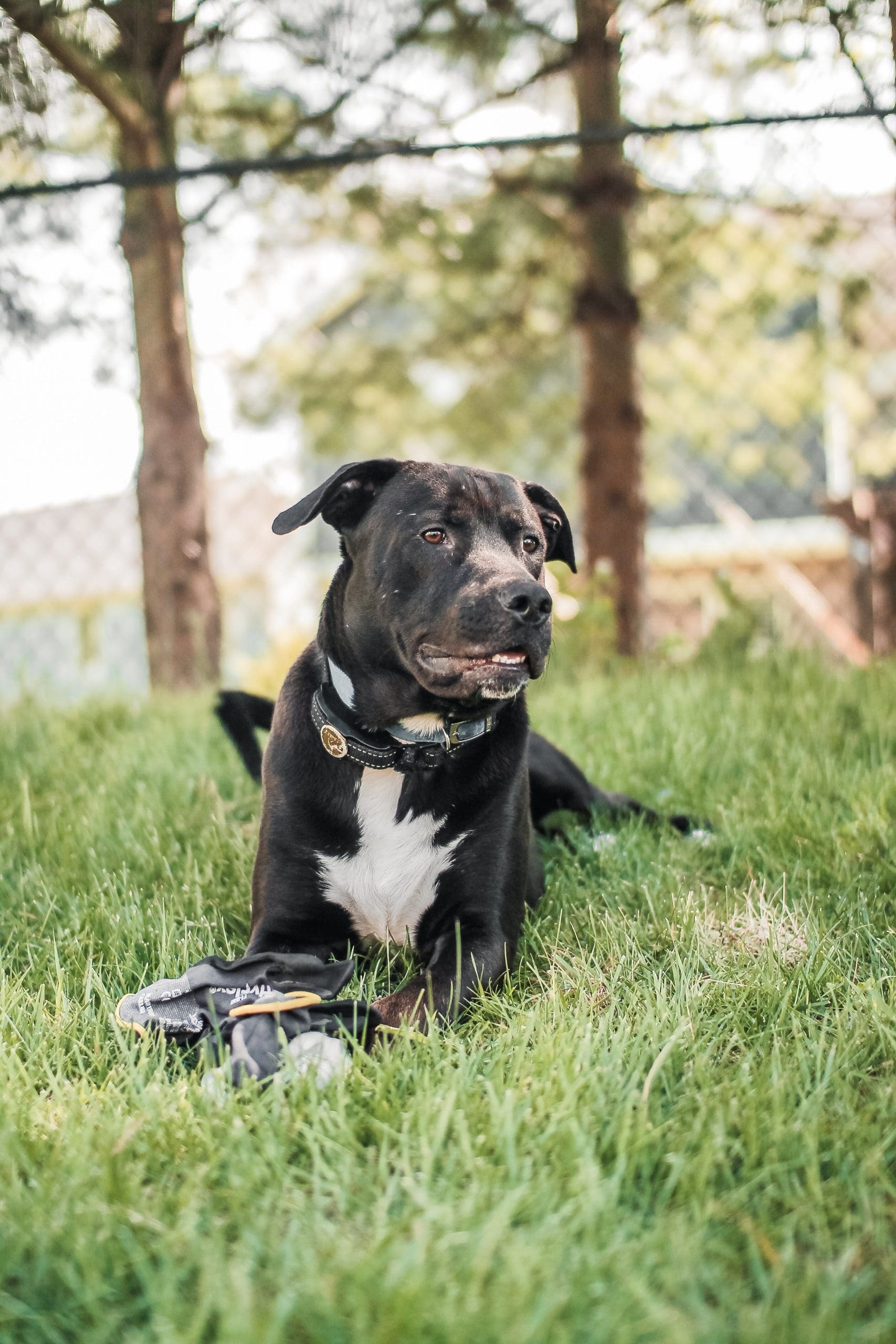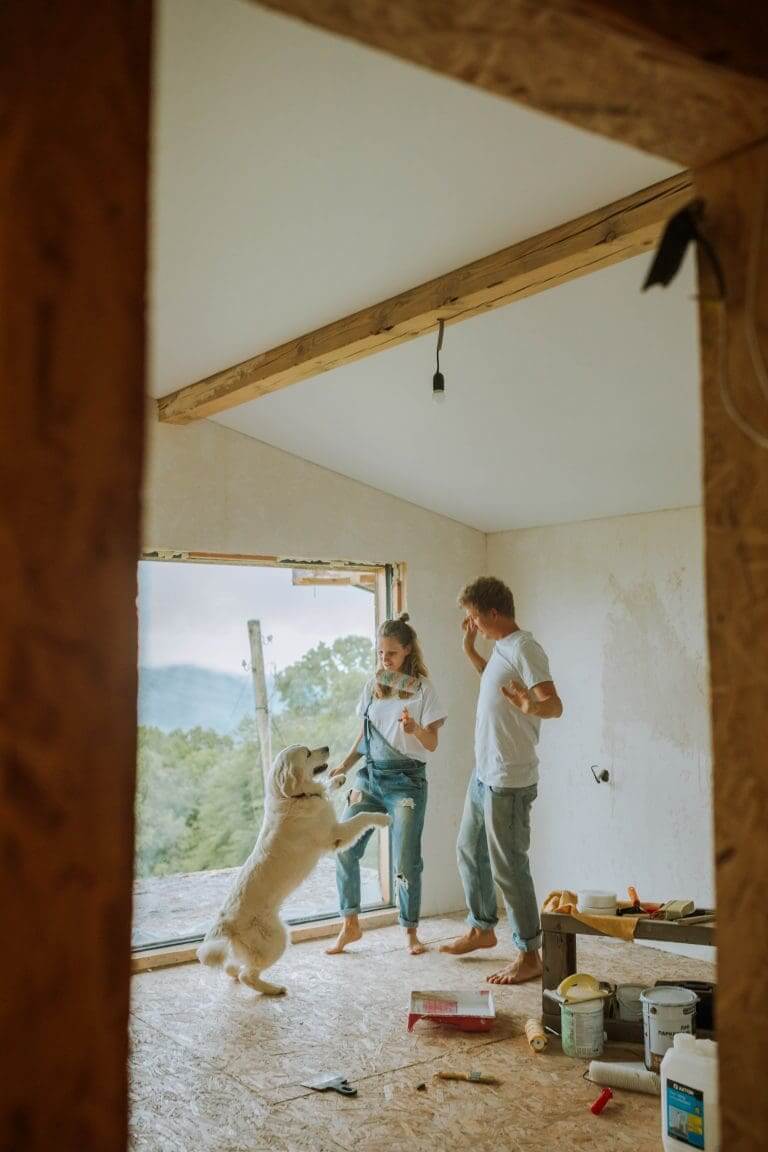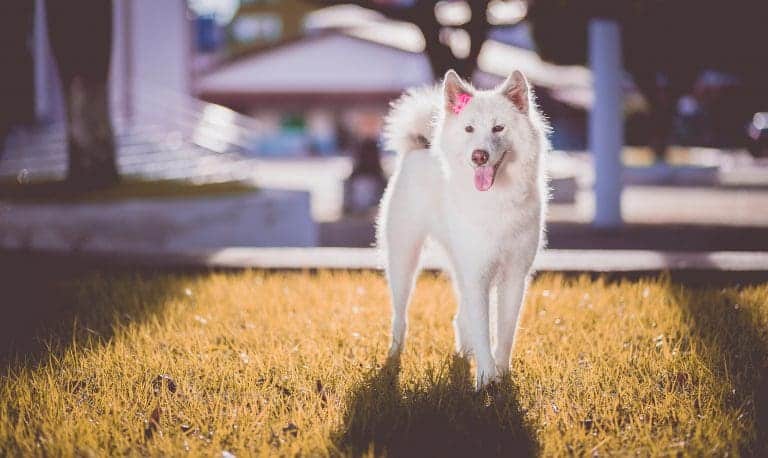Why Do Dogs Twitch In Their Sleep?
Post Date:
December 10, 2024
(Date Last Modified: November 13, 2025)
Dogs often make small movements while asleep, which can look like twitches, limb paddling, or brief vocalizations. These behaviors usually reflect normal sleep activity but can sometimes signal medical issues.
What twitching looks like
Paw paddling or rapid flexion of a single limb that lasts about 1–10 seconds is commonly reported by owners as sleep twitching[1].
Facial twitching and whisker or ear movements are typically brief, often under 5 seconds, and may be asymmetric[2].
Whole-body shudders or muscle jerks that involve both sides of the body may last longer, up to around 30 seconds in many benign cases[3].
Intensity, duration, symmetry, and frequency are the practical axes owners can use to categorize events: low-intensity twitches that recur a few times per night are different from frequent, prolonged, or bilateral episodes that happen multiple times per hour[1].
When capturing video, prioritize clear views of the whole dog and timestamps; short clips of 10–30 seconds usually show typical twitch patterns, but longer recordings help distinguish repetitive versus isolated events[2].
Sleep stages and canine neurophysiology
Dogs cycle through REM and non-REM sleep, with REM episodes recurring multiple times per sleep period; REM bouts commonly last a few minutes in adult dogs[2].
Muscle atonia that suppresses large motor output during REM is typically strongest in mid-to-late REM, allowing small distal muscles to twitch while larger movements are inhibited[1].
Key brain regions include the brainstem reticular formation and pontine structures, and neurotransmitters like GABA, glycine, and monoamines modulate both sleep state and motor inhibition[3].
Shallow non-REM sleep and light arousal stages permit more spontaneous reflex movements than deep non-REM, so twitching frequency can increase when dogs are resting lightly rather than in deep sleep[2].
Dreaming and motor activation
REM-linked dream activity is associated with rhythmic limb twitches and behaviors that resemble running or chasing; many studies show a strong temporal link between REM and complex motor patterns in canines[2].
Vocalizations, paddling, and coordinated limb movements during REM can appear purposeful but generally lack the full power of wakeful movement because of partial muscle atonia[1].
Comparative work shows that domestic dogs display REM-associated behaviors similar to other mammals, suggesting dreaming may rehearse species-typical actions like chasing or social interactions[4].
Physiological reflexes and benign myoclonus
Startle reflexes and hypnic jerks are normal and often occur as dogs transition between sleep stages; single, isolated myoclonic twitches that do not impair breathing or consciousness are usually benign[5].
Puppies exhibit more frequent myoclonic events because immature nervous systems generate stronger spontaneous motor activity during sleep[2].
Expected prognosis for isolated, brief myoclonic twitches is excellent, with most cases resolving as the nervous system matures or with minor environmental adjustments[5].
Developmental and age-related factors
Puppies spend a larger proportion of total sleep time in REM compared with adults, and many puppies have REM-dominant sleep for the first several months of life[2].
Senior dogs may show altered sleep architecture, and age-related neurologic conditions, chronic pain, or arthritis can increase night-time movement or make sleep positions uncomfortable, which modifies twitch patterns[3].
Certain breeds with conformation or neurologic predispositions can show distinctive movement patterns; breed-specific risks are assessed during a clinical neurologic exam rather than being diagnostic on their own[1].
Distinguishing twitching from seizures
Benign sleep twitches usually occur without loss of consciousness and the dog will respond normally if gently awakened, whereas epileptic seizures often produce impaired awareness and unresponsiveness during the event[3].
Seizures frequently progress to more sustained rhythmic convulsions, can be bilateral and symmetric, and are often followed by a post-ictal period of disorientation that lasts minutes to hours[3].
Veterinarians rely on history, quality video of events, neurologic examination, and targeted diagnostics like bloodwork and imaging to differentiate sleep twitches from nocturnal epilepsy[4].
Medical causes and differential diagnoses
Neurologic causes such as idiopathic epilepsy, structural brain disease, or neuromuscular disorders are on the differential when twitching is frequent, prolonged, or accompanied by neurologic deficits[3].
Metabolic disturbances—like low blood glucose or electrolyte abnormalities—can produce myoclonic jerks; clinicians use bloodwork to screen for these reversible causes early in the diagnostic process[4].
Toxicities and some medications can provoke tremor or twitching, and orthopedic pain can be misinterpreted as neurologic movement if the dog shifts position frequently during sleep[5].
| Twitch type | Typical duration | Symmetry | Usual responsiveness |
|---|---|---|---|
| Isolated paw paddle | 1–10 seconds | Often asymmetric | Responsive if awakened |
| Facial/ear twitch | Under 5 seconds | Asymmetric | Responsive |
| Whole-body shudder | Up to ~30 seconds | May be bilateral | May be slow to rouse |
The durations listed in the table reflect commonly observed ranges and are used clinically to triage events as benign versus concerning; clinicians compare owner videos to these typical timeframes during assessment[1].
Environmental and lifestyle triggers
Recent vigorous exercise before sleep can increase twitch frequency for up to several hours after activity[2].
Temperature extremes alter muscle tone and shivering thresholds; a sleeping surface that is too cold can provoke shudders and muscle contractions that mimic twitching[5].
Acute stress or changes in routine commonly increase nighttime restlessness and twitch frequency until the dog readapts to the environment[4].
Red flags and when to seek veterinary care
Seek urgent veterinary evaluation if episodes are prolonged beyond 2 minutes, are increasing in frequency to multiple events per hour, or there is clear loss of consciousness during events[3].
Other red flags include urinary or fecal incontinence during events, persistent weakness after the episode, or new neurologic signs such as circling, head tilt, or vision loss[4].
Bring time-stamped video, a concise history of onset and progression, and any recent medication or toxin exposures to the veterinary visit to aid diagnostic planning; these materials significantly improve triage and testing decisions[1].
How owners can monitor and help
- Record clear video from several angles, aiming for clips of 30–120 seconds that include the lead-up and recovery; videos are a primary diagnostic tool[4].
- Keep a simple log noting time of night, event duration, preceding activity, and any environmental changes; note frequency per night or week to detect trends[1].
- Optimize sleep conditions: comfortable bedding, stable temperature (avoid cold floors), and a calm pre-sleep routine to reduce arousal-related twitches[5].
- Avoid forcibly waking the dog unless the episode is prolonged or clearly harmful; gentle rousing can help determine responsiveness without escalating a seizure-like event[3].
If a veterinarian recommends further testing, common steps include basic bloodwork to screen metabolic causes, and in cases with frequent or suspicious events, referral for advanced imaging (MRI) or electrodiagnostics (EEG/EMG) may be advised[4].
Prognosis and treatment options
When twitching is judged benign—isolated, short, and without neurologic deficits—no specific medical treatment is usually required and spontaneous improvement is common within weeks to months in developing dogs[2].
If twitching reflects an identified medical condition such as epilepsy or a metabolic disorder, targeted therapy is used; for idiopathic epilepsy, first-line anticonvulsant regimens often reduce event frequency by at least 50% within 2–8 weeks of appropriate dosing in many patients[3].
Supportive care for nighttime myoclonus or sleep-related shudders focuses on environmental modification and pain control when musculoskeletal disease is present; simple changes like warmer bedding and limiting strenuous activity within 1–2 hours of sleep commonly reduce twitch frequency in affected dogs[5].
For dogs admitted to hospital for prolonged or repetitive events, maintenance intravenous fluid therapy is a common component of stabilization; a typical maintenance target is about 60 mL/kg/day (60 mL per kg per day) adjusted per clinician judgment[1].
Diagnostic testing and what to expect
Primary screening usually involves routine bloodwork (CBC, serum chemistry, and thyroid testing) because metabolic causes such as hypoglycemia or electrolyte derangements can provoke twitching; clinicians perform these tests in most cases of new or worsening events[4].
When structural brain disease or refractory seizures are suspected, advanced imaging with MRI is commonly recommended; MRI is diagnostic in a meaningful minority of referred cases, with referral populations showing abnormal imaging in roughly 20%–40% of evaluations depending on case selection[4].
Electrodiagnostic testing such as EEG or EMG may be used to characterize event type; routine outpatient EEG is available at specialty centers and often requires 2–6 hours of recording to capture sleep and wake states for clinical correlation[4].
In emergency settings, additional monitoring such as pulse oximetry and blood glucose checks are performed immediately; a bedside glucose < 60 mg/dL (3.3 mmol/L) is considered hypoglycemic and prompts rapid intervention[1].
Monitoring plan for owners
Create a simple tracking routine: note date, clock time, event duration (to the nearest 10 seconds), and context such as recent exercise or medication changes; recording frequency over a 7–14 day period helps clinicians evaluate trends and treatment response[4].
Use a dedicated folder on your phone for videos and label clips with date/time; clinicians find a series of 3–5 representative videos over days to weeks much more informative than a single long clip[4].
If your veterinarian prescribes a trial medication or a pain-management plan, expect follow-up reassessment at about 2–4 weeks to judge effectiveness and adjust therapy; many therapeutic trials report meaningful change in that timeframe[3].
For at-home safety, do not restrain a dog during a suspected seizure; pad the surroundings if repeated falls






